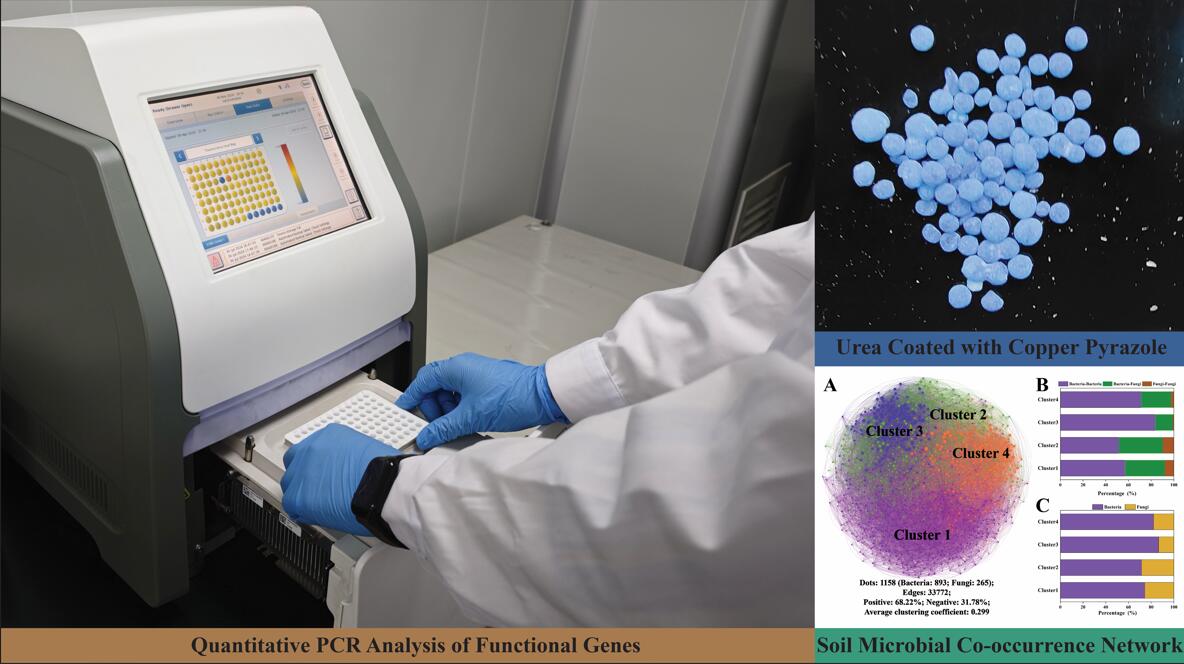
Enhancing nitrogen (N) use efficiency has become a hot issue in global agricultural research currently. Among numerous coping strategies, the application of nitrification inhibitors has attracted much attention. Nitrification inhibitors can improve the availability of N by regulating the structure and function of the soil microbial community and slowing down the nitrification and denitrification processes.
Recently, a research team led by Professor WU Lifang from the Hefei Institutes of Physical Science of the Chinese Academy of Sciences, developed a novel nitrification inhibitor, copper pyrazole, and a slow-release fertilizer coated with it.
The related findings were recently published in Frontiers in Microbiology.
“This new approach helped improve the efficiency of nitrogen fertilizer use in agriculture,” said Dr. DUAN Yan, a member of the team.
In this study, the research team conducted a 60-day soil experiment to study how copper pyrazole affects soil ammonium and nitrate nitrogen levels, as well as its impact on the soil’s microbial community.
Their results showed that copper pyrazole slows down the nitrification and denitrification processes in nitrogen transformation. It does this by reducing urease activity and lowering the levels of nitrification genes (AOB - amoA) and denitrification genes (nirK) in the soil.
Further research also found that copper pyrazole changed the soil’s microbial community structure and function. By analyzing the data, the team identified key microorganisms that play important roles in nitrogen cycling.
This discovery provides scientific support for using nitrification inhibitors wisely and offers a new approach for sustainable agriculture.

Quantitative PCR analysis of functional genes. (Image by DUAN Yan)

86-10-68597521 (day)
86-10-68597289 (night)

52 Sanlihe Rd., Xicheng District,
Beijing, China (100864)

